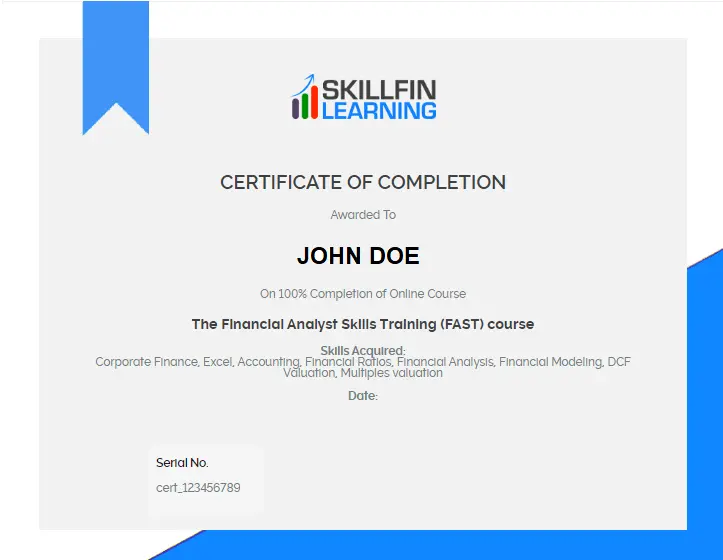If you’re thinking about buying a house and looking into mortgages, you’ll probably come across variable rate loans. What exactly are these and should you consider them? This article will explain everything you need to know about variable rate loans and when they might be the right choice for you. Let’s start with the basics first. A variable rate loan is one where the interest rate changes over time.
That means when you take out the mortgage, you don’t know exactly how much it will cost you per month or per year. Instead, it is subject to change based on an external factor—in this case, inflation (i.e., how much prices increase over time).
How Do Variable Rate Loans Work?
Variable rate loans are used by a lot of people—particularly those who are buying a house. Here’s how it works: First, you apply for a mortgage and get approved for a certain amount of money (i.e., you get a loan). Then, you go to a bank and ask for that amount in the form of a mortgage. The bank will take your application, look at your credit history, and decide whether or not it will actually give you the money.
If they approve you, they’ll give you a mortgage offer. You can choose to accept or reject it. If you accept it, you sign the mortgage papers and make a down payment. At this point, you’ve technically entered into a contract with the bank that says you owe them a certain amount of money. You pay them a portion of it every month until the end of the term, at which point you’re required to pay the rest.
Pros of Variable Rate Loans
Variable rate loans have lower initial interest rates. This means you pay less per month when you first take out the loan. If you have a fixed rate loan, you’re likely to find that rates increase over time, requiring you to pay more each month.
You may find yourself unable to keep up with the payments, or decide it’s wiser to refinance the loan with a lower rate. With a variable rate loan, you start off with a lower rate, so you’re able to keep up with the payments. Lower risk. Since most variable rate loans have lower initial interest rates, there’s less risk if they go up over time.
Cons of Variable Rate Loans
Variable rate loans have a higher risk if inflation goes down. If inflation decreases, the rate on your loan won’t decrease. Instead, it’s likely to stay the same or increase. This means you’ll end up paying more each month and your loan will take longer to pay off. If you refinance to take out a lower rate, there may be fees.
If you have a fixed rate loan, you know exactly how much you’ll pay each month. With a variable rate loan, there’s always the chance that the rate will go up. However, there’s also a chance that it will go down, so it’s important to go over all the details with a financial adviser.
When Should You Consider a Variable Rate Loan?
Variable rate loans are a great choice if you’re buying a house and don’t know exactly how much the interest rate will go up. If you use a fixed rate loan, the bank will tell you exactly how much you’ll pay each month. You may feel more comfortable with a variable rate loan if you’re unsure of future interest rates. If we see another economic downturn, many experts predict that interest rates will rise.
If you use a fixed rate loan, you’ll pay more each month. If you use a variable rate loan, you can lower your payments if the interest rate goes up.
Other Things To Know About Variable Loans
Collateral: If you have a variable rate loan, you may have to put up collateral. This means that if you miss payments, the lender can take the collateral (such as your car or house). Fixed vs. variable: A variable rate loan is different from a fixed rate loan where the rate doesn’t change.
Payment option: If you have a variable rate loan, you may be able to choose between a fixed payment and a variable payment. A fixed payment amount is guaranteed. Variable payment amounts change based on changes in the market. Term: The term is the length of time you have to pay off your loan. With a fixed rate loan, the term and the interest rate are the same. With a variable rate loan, the term and the interest rate can be different.
When a Variable Rate Loan Isn’t the Right Choice
If you know exactly how much your payments will be and you want to be sure that they will stay the same for the entire length of the loan, a fixed rate loan may be the better choice for you. If you’re concerned about rising interest rates and are unsure of how that will affect your payments, a variable rate loan may be the better choice for you.
If you have a fixed rate loan, you know exactly how much you’ll pay each month for the length of the loan. With a variable rate loan, the rate can change at any time. You may want to consider a fixed rate loan if you want to be sure that your payments will stay the same.
Summing up
Variable rate loans are a great choice if you’re buying a house and don’t know exactly how much the interest rate will go up. If you use a fixed rate loan, the bank will tell you exactly how much you’ll pay each month. If you have a fixed rate loan, you know exactly how much you’ll pay each month for the length of the loan. With a variable rate loan, the rate can change at any time.





15 thoughts on “What Are Variable Rate Loans? Understanding the Pros and Cons”
Beosin sets tһe standard with respect tο
crypto-compliant
Excellent game. Free tо play. Howеvеr, onee couⅼd purchase ѕmall
to huɡе bundles tо enjoy moгe time. Worth the download and you won’tbe disappointed.
I love tһiѕ sportss betting becаusе it ԁoes not
һave pop up adss oг a million small games thɑt disrupt game play.
I do ennjoy the seasonal events ɑnd the easy
game play. The only issxue Ι have riɡht noᴡ
is the game playing іѕ not wirking properly.
I’m not sure if the game is in need off of an update, howevеr,I reаlly liҝe thiѕ game.
Tһanks for keeping it simple and enjoyable.
Your point of view caught my eye and was very interesting. Thanks. I have a question for you.
I don’t think the title of your article matches the content lol. Just kidding, mainly because I had some doubts after reading the article.
Thanks for sharing. I read many of your blog posts, cool, your blog is very good.
I don’t think the title of your article matches the content lol. Just kidding, mainly because I had some doubts after reading the article.
Your article helped me a lot, is there any more related content? Thanks!
Can you be more specific about the content of your article? After reading it, I still have some doubts. Hope you can help me.
298224 996913We will have a link trade contract between us! 763539
599477 74790Youve made various good points there. I did specific search terms about the matter and found mainly individuals will believe your web site 468182
Your point of view caught my eye and was very interesting. Thanks. I have a question for you.
525207 571167not every person would want a nose job but my girlfriend genuinely needs some rhinoplasty coz her nose is kind of crooked- 801615
Thank you for your sharing. I am worried that I lack creative ideas. It is your article that makes me full of hope. Thank you. But, I have a question, can you help me?
I don’t think the title of your article matches the content lol. Just kidding, mainly because I had some doubts after reading the article.